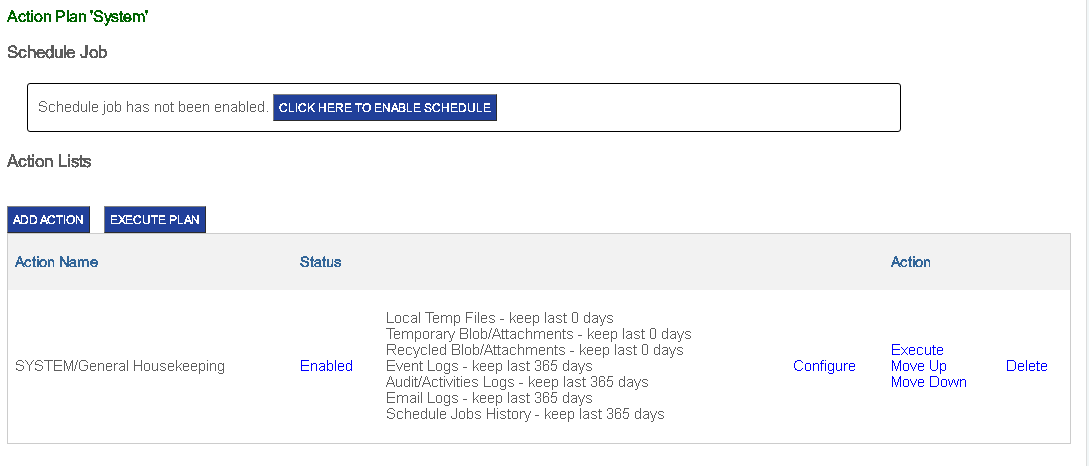Housekeeping
Data Maintenance and Cleanup in eCatalog (Housekeeping)
eCatalog includes a comprehensive housekeeping system designed to maintain optimal data management and storage efficiency. Administrators have the ability to establish housekeeping rules and schedules, determining when and how cleanup actions should be executed.
Default and Customize Housekeeping Plans:
- Pre-configured System Housekeeping: The system includes a default housekeeping plan that can be set to run daily. This plan is designed to help maintain system efficiency without manual intervention.
- Custom Housekeeping Actions: Programmers have the flexibility to develop tailored housekeeping actions based on specific needs, further enhancing the system’s ability to manage data effectively.
Key System-Based Housekeeping Actions:
- Manage Local Temporary Files:
eCatalog generates numerous temporary physical files that could eventually consume significant disk space on the Application Server. Administrators can set the duration that temporary files are retained. It is advisable not to set this duration to zero days, as the system may still be using these files. - Clean Up Temporary Attachments/Blobs:
Temporary attachments created in the database could use up space on the Database Server. Administrators can specify how many days to keep temporary attachments before they are automatically removed. - Purge Recycled Attachments:
When users delete attachments, these are not immediately removed from the database. This housekeeping action allows for the permanent deletion of these files from the database as part of data cleanup. - Clear Event Logs:
Event logs, which store detailed logging information, can be managed and old logs deleted through this housekeeping action to free up space and maintain database performance. - Audit (User Activity) Logs:
User activities are logged in the Audit/User Activity Logs. By default, logs should be retained for up to one year, though this setting is configurable to meet different data retention policies. - Email Logs:
Email communications are logged before dispatch, aiding in troubleshooting. Administrators can manage how long these logs are retained. - Schedule Job Histories:
Administrators can set rules for logging the history of scheduled jobs, determining how long these records are kept and managing the volume of logged data efficiently.
